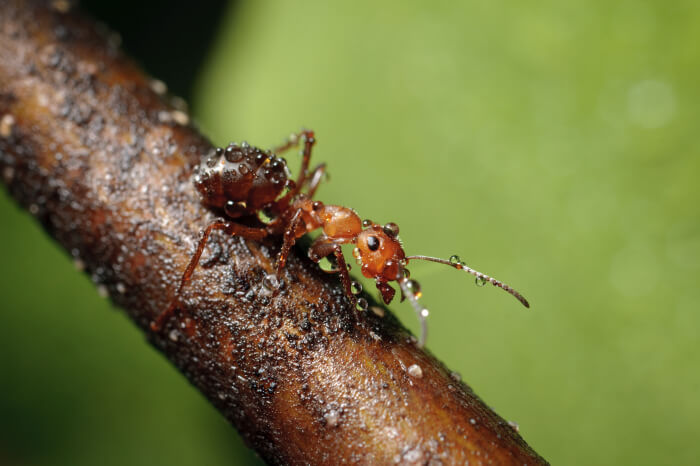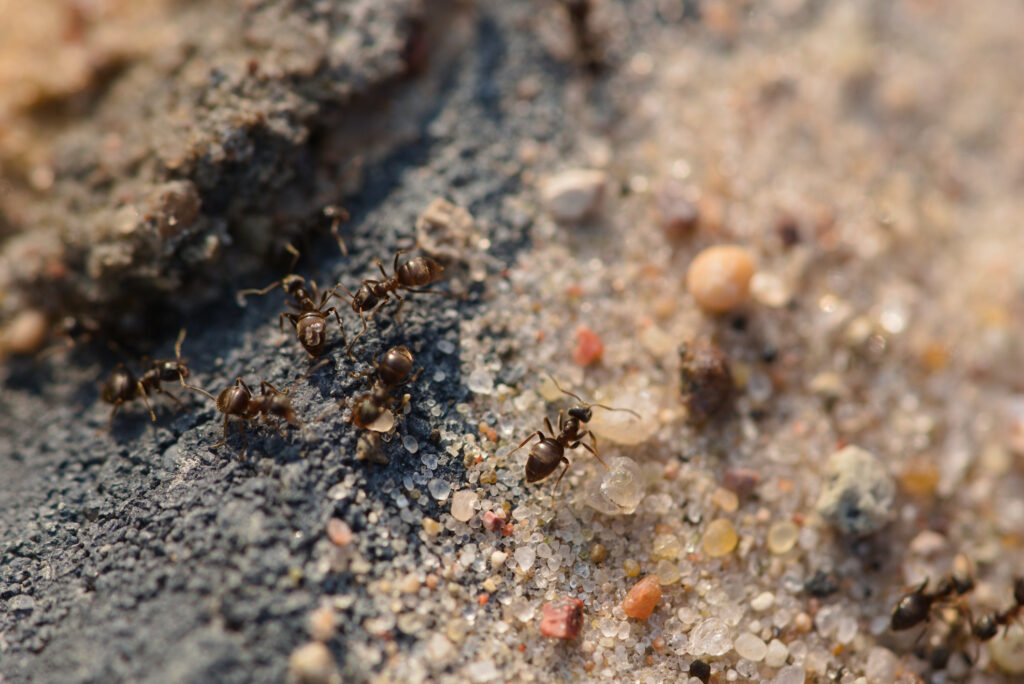


Pavement ants are one of the most common types of ants in the U.S. and they are generally harmless to humans. But it doesn’t mean you can just ignore a large infestation of pavement ants in your home. They can be a nuisance as they invade your house and yard, plus form large colonies within and beneath. Fortunately, there are effective ways to eliminate pavement ants using ant bait.
So how do you eliminate pavement ants with pavement ant bait? Using ant bait is one of the best ways to get rid of pavement ants and pavement ant colony because of its slow-acting nature - it may take several weeks for baits to work, but time is exactly what you need to make sure that the worker ants take the bait back to their nests and feed it to the rest of the ants, including the queen.
One of the most crucial things in the effectiveness of ant bait is knowing exactly what kind of ant you’re dealing with here. To the uninitiated, all ants may look the same and they may end up using the wrong bait as an ant killer. So first, you have to make sure that it’s really pavement ants that you’re dealing with here.
Pavement ants are about 2.5 to 3 mm long, with a dark brown to black body. Their body is divided into three segments - head, thorax, and legs. Their head and thorax have a darker color while their legs and antennae have a lighter color. The antennae on their heads have 12 segments.
They operate on a caste system, where there are queens (the winged females), reproductive males, and workers. It’s the workers’ job to find food and take care of the colony. Each colony can have more than one queen. These reproductive ants mate during summer and spring. The queen would lay her eggs afterward, the mated females would shed their wings and move to a different location to start a new colony, and the males would die.
The queen’s eggs would develop into adults, who will later become the workers, in around 40-60 days. A worker ant has a lifespan of about five years but males who were used for reproducing die after a few months.
Ever wonder how pavement ants got their name? Their colonies are usually found nesting in not just pavements, but also in driveways, sidewalks, and patios. A telltale sign that you are near their nests is when you see mounds of dirt or sand. They usually enter houses and buildings through cracks on interior slabs, floorboards, and building foundations. If you see piles of ant dust, sand, and displaced soil near cracks in concrete slabs or at the top of the foundation walls, it’s a sign that you have a pavement ant infestation.

Baits are the best way to control an ant infestation, whether it’s pavement ants or any other ant species. You need to destroy the colony, which is done when you kill the queen. This is the only way to completely eradicate the infestation. Insecticidal sprays do work, but mostly for on-the-spot killing - it’s merely a short-term solution. You may be able to kill the visible pavement ant worker bunch, but there are more that will just take their place.
Baits are for a long-term solution. You will need to wait for the liquid bait to take effect, but using this method means you’re killing the ants slowly but surely. You have to let the process carry out - the worker pavement ants find your poisoned bait, they will take the bait back to their nests and feed it to the queen and the other ants. It’s like poisoning them internally and they will be wiped out after a few weeks, destroying the colony completely. The number of dead insects you are seeing will dwindle down to nothing.
Pavement ants have a broad diet, which is an advantage when it comes to baiting, as you have several options to choose from. The most convenient ones are sugar or protein-based bait stations that are pre-filled with pesticides. You can actually use two baits at once - a sugar-based one and a protein-based one.
You can also use non-repellent insecticides to use in your bait traps. These traps include boric acid, hydramethylnon, and fipronil. Boric acid especially is very toxic to insects but barely toxic for people. The baits should be placed along their trails and near their colonies. They are easier to spot at night and you can usually find ant activity around plumbing pipes and electrical wires.
You can also try bait that comes in a squeezable gel form, which you can place directly into the cracks of foundations and paving stones.
While using bait traps is the best system in eliminating ant colonies, it doesn’t mean you don’t have a use for insecticide sprays. If you need a quicker solution - for instance, you see a clump of ants crawling all over a certain spot in your home and you need to kill them pronto - then several sprays of insecticide should kill them off quick. This is also effective if you happen to see a pavement ant nest outdoors. You can spray it all you want (some even drench the nest) knowing that this nest is the entire thing.

Infestations can happen over and over again, so this is why you must take care that ants will never invade your home ever again. Along with setting up bait to eliminate the colony, here are other things you can do to keep the pavement ants from coming back to your property.
Are your DIY efforts in killing the ants not working? Are you dealing with a much larger infestation and you feel you couldn’t handle it? It’s time to let a pest control professional take over. If you’re in New Jersey and surrounding areas, Call PermaKill Exterminating to deal with your ant problem.
They deal with all kinds of ants - crazy ants, carpenter ant, pharaoh ant, fire ant, odorous house ant, winged ants, Argentine ant, thief ant, sugar ants, cornfield ants, and grease ants. They got your back too with other types of pests, from termites to rodents. Call now and make your home pest-free.